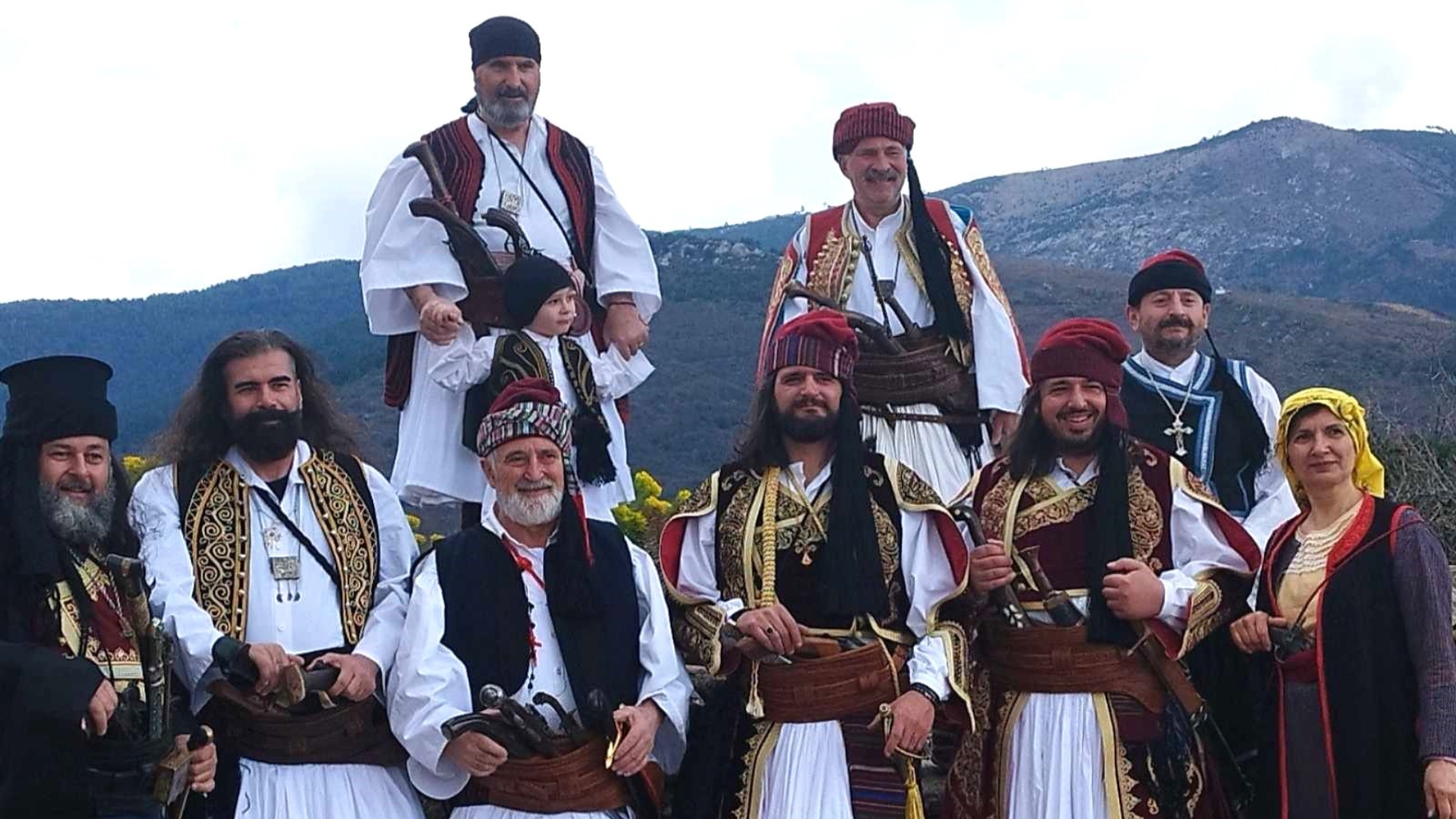By Kathy Karageorgiou
The Cultural Society of Nedousa embodies a crucial role for the Greek village of Nedousa. Its important and heroic involvement in the 1821 Revolution leading to Greek independence from 400 years of Ottoman enslavement, is at the forefront of its social and cultural events.

Australia has something to do with the preservation and liveliness of this active cultural society tucked away in the lush foothills of the Taygetos mountains, 20 kilometres from Kalamata in the Southern Peloponnese.
I spoke to a member of this Cultural Society, Nedousa’s priest, Father Vasilios Verginiadis, aged 40, who has subsequently been to Australia.

“Most of my relatives on my fathers’ side live there, and my father had also migrated to Australia in the 1970s. He stayed for only eight years though, and returned to be married, remaining in Nedousa where I was born,” he tells me, continuing:
“I have only the fondest memories of my visit to Australia years ago. Apart from visiting my many relatives in Sydney, I also spent time with the Nedousa Society of Melbourne, including at their church Agia Aikaterini.”
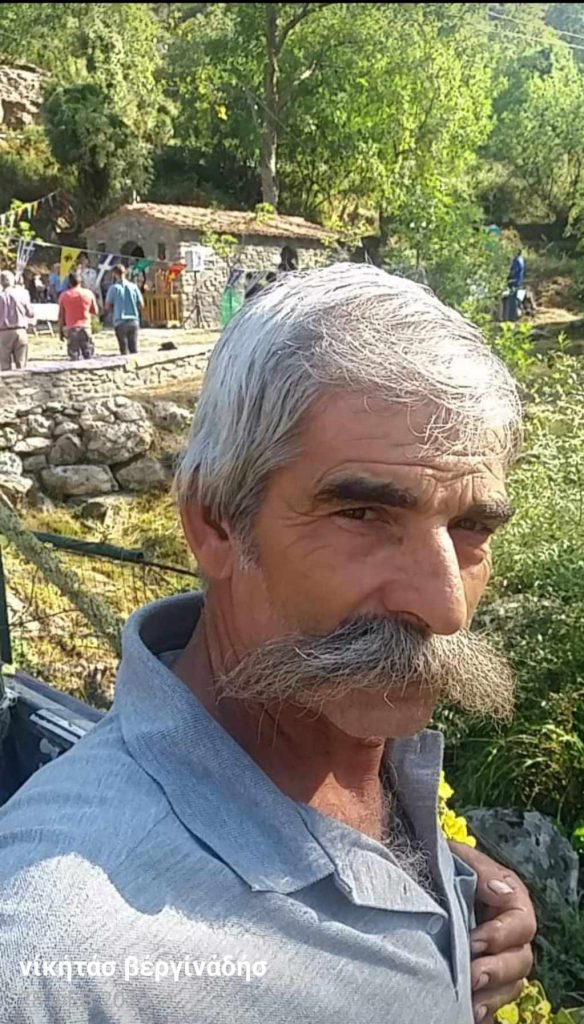
He also recalls being impressed by subsequent second and third generation Greek Australians, even those married to non-Greeks, adhering to the traditions of their Greek roots, adding “they keep family values alive such as respect for grandparents, even among multiculturalism and globalism.”

Father Vasilios enthusiastically discusses the history of his beloved Nedousa, including many interesting facts about the village’s role in the Greek Revolution.
“Nedousa, at 700 metres altitude (along with other small villages close by such as Artemisia, Karveli, Alagonia, Piges and Lada), is still traditional and relatively undeveloped. The population of Nedousa has been declining steadily, with 643 people recorded in 1889 while in 2022 it has a permanent population of less than 30. This decline is in large part due to migrations from the 1950s onwards to the USA and Australia,” he says.
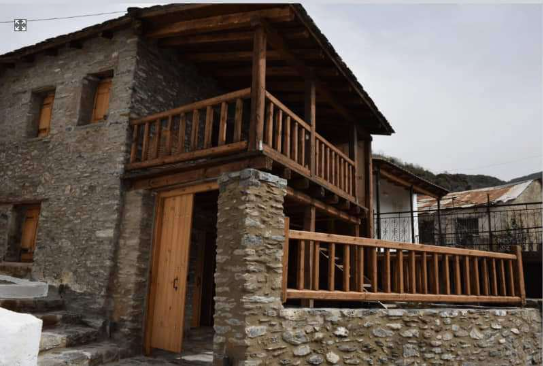
He then informs me that apart from return visits to their village, its former inhabitants, including many Greek Australians, send donations and funding back to Nedousa.
“They kindly and generously support our churches and community projects helping to keep our Cultural Society, and our important historical and heroic village, alive,” the priest explains.

Father Vasilios proudly relays how Nedousa played a definitive part in the Greek Revolution of 1821 and beyond, including liberating Kalamata on March 23, 1821 where the Ottomans surrendered without even fighting.
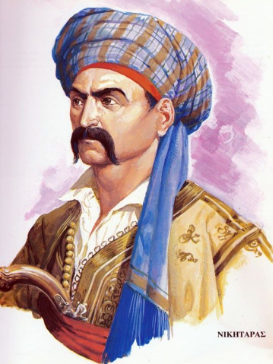
“Nedousa is the birthplace of our hero Nikitaras (Nikitas Stamatelopoulos, 1787-1849). His father had fought in the 1770 Orlov revolt against the Turks. Fighting for freedom under Christ runs in our blood, and we were never conquered by the Turks, though we had to pay taxes. We, and the other surrounding villages, had more than 2,000 armed Revolutionaries,” he says before relating the crucial role the Greek church played in the Revolution, where even simple priests and monks fought for Greek emancipation from the Ottoman yoke.
“Nedousa is also home to the Mardaki monastery, whose monks were well-known experts at healing with local herbs. On the orders of the Patriarch of Constantinople, the priest of the monastery, Nikiforos Pratis, healed the Sultan’s extremely ill daughter. In return, the Sultan issued a decree that the monastery was never to be set foot upon by the Ottomans.”

The Mardaki monastery, in its independence from the Turks, served as a beacon for the exchange of ideas for Greek liberation, but was also a practical base for the storing of munitions for the Greek Revolution.

Father Vasilios narrates, “Two hundred and fifty men, many from Nedousa, with their 200 sturdy mules, met a ship carrying weapons at the port of Kardamyli in Mani. It was sent specifically from Smyrni (now Turkey), by the famous revolutionary (and priest) Papaflessas. He was also a member of the Filiki Etairia or ‘Society of Friends,’ a secret political and revolutionary organisation founded in 1814, whose purpose was to overthrow the Ottoman rule of Greece and establish an independent Greek State.
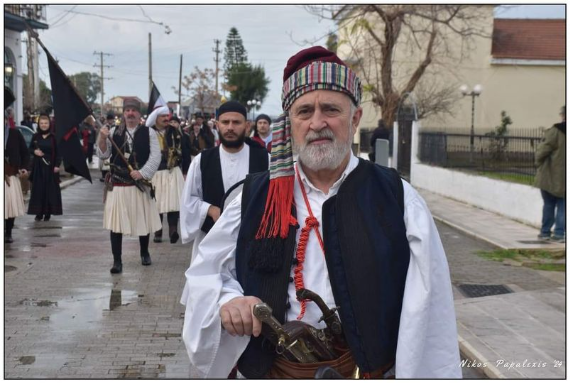
“These weapons were taken back to Nedousa’s Mardaki monastery to be stored and readied for use in the Revolution. The monastery sacrificed its many books, tearing them up as paper fillers for the guns used back then, in order to push out the gunpowder.

“Apart from our Nikitaras, famous Greek Revolutionaries such Kolokotronis himself (who was Nikitaras’ uncle), Papaflessas, Anagnostaras, and others, even Bouboulina, gathered at the Mardaki monastery to plan their liberating moves.”
Upon asking Father Vasilios how violence and the Church reconcile, he tells me: “The Greek Orthodox Church has always been present among the Greek community, fighting for its survival in many ways – through schools, hospitals, etc. Our faith is the messenger, heralding freedom, and peace. W c v are peace-loving people, who have never had a problem with the average Turk. We stand for equality, freedom and love, and fought to save our own soil and people from oppressive slavery. God was present in their conquering, and so God allowed us to fight.”
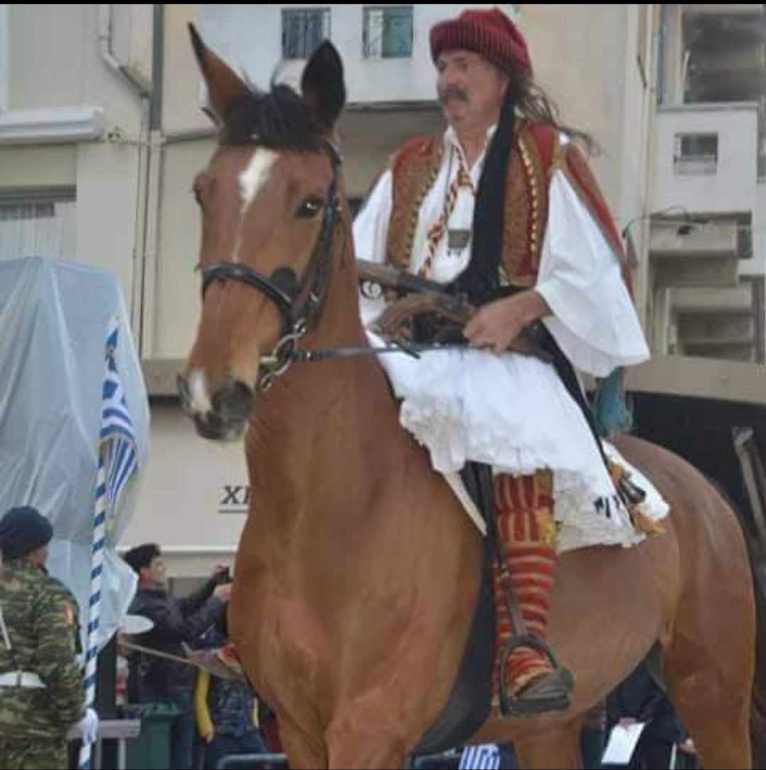
Father Vasilios also explains that the Greek Revolution was not only a national and religious liberation, but was a fight for freedom on a social and class level.
“Not only were we enslaved as Greeks and Christians, but also lived like 2nd and even 3rd class citizens. It was also a class war against the feudal lords. The collective struggle of the people – the priest, the shepherd, the farmer, the sailor, etc, complemented the armed revolutionaries fight for freedom,” he says.
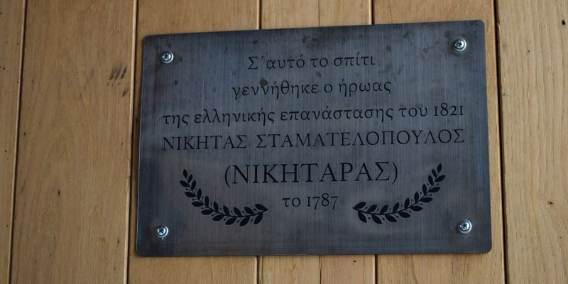
He considers it important to remind us of the significance of the celebratory March 25 date of the Greek Revolution, which he stresses was chosen in consultation with both the Church and the Revolutionary fighters.

“This 25th of March date commemorates the visit of the Archangel Gabriel to the Virgin Mary, during which he informed her that she would be the mother of Jesus Christ, exactly nine months before his birth at Christmas. Church and nation together, representing hope, freedom; a new dawn for Greece – this is what the Greek Revolution stands for.”

